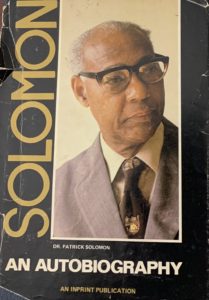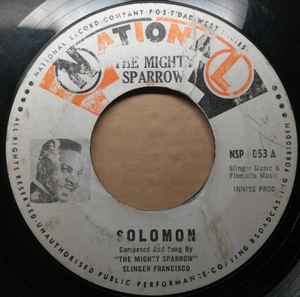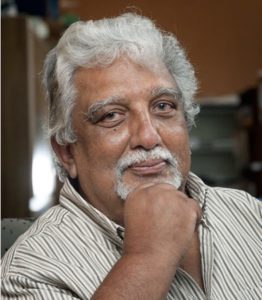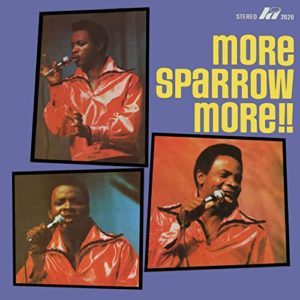|
Getting your Trinity Audio player ready...
|
Reading Time 7 mins
July 9, 2022
‘Irony has only emergency use. Carried over time it is the voice of the trapped who have come to enjoy their cage.’ (Lewis Hyde).
Slinger Francisco, the Mighty Sparrow, has been pronounced dead in the past so many times before that he will surely pinch himself on his birthday, July 9, to reassure himself that he yet breathes and lives. The trajectory of his career, beginning with Road March and Calypso King titles in 1956, is nothing short of amazing. He has since won both Road March and Calypso King titles eight times, has helped win calypso wider international recognition, mentored many younger calypsonians, and continues to perform at the ripe age of 87.
Many of his calypsos are timeless and are standard fare in many a Carnival party or informal lime. His subject matter ranges from amorous adventures to social and political issues, from the ribald to the profound. His political affiliations in Trinidad and Tobago have veered from unstinting support of the government of Eric Williams, the country’s first Prime Minister, to sharp critiques of its policies and positions. The two ‘Solomon’ calypsos discussed below capture the ambiguity that many sensitive artistes feel when they begin to recognize the often ironic nature of truth.
_ _ _ _ _ _ _ _ _ _ _
In January 1965, Slinger Francisco, aka The Mighty Sparrow, released his calypso album for that year. Next to ‘More Sparrow More’ four years later in 1969, that 1965 ‘Congo Man’ album would probably be among Sparrow’s best ever Long-Playing record releases, featuring not only the title tune but ‘Well Spoken Moppers’, ‘Man Like to Feel’ and ‘Patsy’. Two cuts, ‘Solomon Out’ and ‘Get to Hell Outa Here’ from that LP were of special interest; both dealt with the same incident.
The incident in question was the ordered release a year or two earlier of a young man named Michael Beausoleil from a police cell in Woodbrook where he had been incarcerated after a fracas with the police which allegedly involved the use of ‘indecent language’ and the throwing of missiles. Patrick Solomon, then Minister of Home Affairs and, as such, responsible for police affairs, who was also Deputy Political Leader of the PNM, and on occasion the Acting Prime Minister, went in person and obtained the release of and waiving of the charges against Mr. Beausoleil, who was soon to officially become his stepson. Solomon also indicated that he would communicate with The Commissioner of Police the following morning.
The incident may well not have drawn much public attention until it emerged during a Commission of Inquiry into the Police Force later in 1964, at which point it became front-page news for some time thereafter. In his autobiography, Solomon claims that the boy had been beaten up by police, sustaining three cracked ribs; he justifies his action not only in the context of the many reports of police brutality circulating at the time but also that a countercharge of police brutality by the family was likely to have had serious repercussions. There was no further word of the charges subsequently.
He would go on to claim that his relationship with Dr. Eric Williams, the then Prime Minister, already tense, would go into freefall thereafter once the matter became public. Williams, he suggests, initially tried to use the incident to have Solomon ousted both from the Cabinet and as Deputy Prime Minister, but facing serious resistance from Port of Spain West, Solomon’s constituency, and the public relations challenge of arranging a quiet departure for his second-in-command, eventually waffled, and instead shifted Solomon from Home Affairs to the Ministry of External Affairs, announcing at a public meeting that those who didn’t like his decision could ‘get to hell out.’ Their relationship, Solomon contends, would never be the same; he would eventually end his career at a diplomatic posting in the USA.
Solomon was of course not a political neophyte. He had entered local politics long before Williams, joining the West Indian National Party (WINP)in 1943 and serving on its executive. In the country’s first elections under adult suffrage in 1946, Solomon and two  fellow members of the United Front won seats in the Legislative Council. He would withdraw from active politics in 1950 but was persuaded by Williams to become a founding member of the PNM, which he served in government as Minister of Education and Culture, Home Affairs, then External Affairs. The PNM would soon become, not only according to his testimony but that of several other contemporaries and later researchers, the one-man fiefdom of Eric Williams, a man disinclined to tolerate either challenge or criticism.
fellow members of the United Front won seats in the Legislative Council. He would withdraw from active politics in 1950 but was persuaded by Williams to become a founding member of the PNM, which he served in government as Minister of Education and Culture, Home Affairs, then External Affairs. The PNM would soon become, not only according to his testimony but that of several other contemporaries and later researchers, the one-man fiefdom of Eric Williams, a man disinclined to tolerate either challenge or criticism.
This leads us back to Sparrow’s two calypsos on the Solomon incident. In all likelihood, Sparrow did not compose these songs; they were probably written by one or more hands from the stable of writers from whom Sparrow purchased all rights at the time. Another point of interest is that at the time, Sparrow was a prominent supporter of the PNM and Eric Williams, with whom he was often photographed in public and in whose honour calypsos like ‘Williams the Conqueror’ were composed and performed. He would jettison the PNM for the NAR only in the 1980s, the era in which ‘Take Your Steelbeam and Go’ (aka ‘We Like it So!’) and ‘Prophet of Doom’ would become popular.
The first Solomon calypso on the Congo Man LP, ’Solomon Out’, is a wry comment on the matter which wavers between support for Solomon and simultaneously chastising him for his action. It begins, tongue in cheek, one suspects, by asserting that Trinidad and Tobago is a truly democratic country: ‘If I had any doubts, now they gone completely/Our nation stands for true

democracy.’ In America (or any other metropolitan country, by implication) the corporal (Oscar Frederick, the Police Association Secretary, who had informed the Commission that the Minister had interfered in the mandate of the Police Commissioner) would have been the one to be dismissed, not Solomon. ‘Where in the world you could find democracy so?’ intones the bard.
Public opinion, he says, may have found Solomon generally ‘too boldface and outta place,’ charging him with also having once slapped Dr. Williams (pure fiction, incidentally). But Solomon, he avers, was a ‘damn good politician,’ who acted ‘like a Lord/trying to spare the rod/ and now he die by the sword.’ His removal as Minister of Home Affairs, he emphasizes, not only demolished the argument that ‘the Doctor (Williams) is a dictator,’ but confirmed that the PNM (and by extension the nation)’ stands for true democracy.’ And all this happened, he sings, ‘because the police force get snob, /a corporal push a knob, / And the minister lost a good job.’
‘Solomon Out’ was clearly composed before the events in the fortnight which followed the revelation of the incident, which ended with Williams’s announcement at a public meeting that far from being disciplined or stripped of seniority in the Party and the Government, he was appointing Solomon as Minister of External Affairs.
It was the second Solomon calypso on the LP, however, that not only grabbed public attention but turned out to have longer legs. ‘Get to Hell Outa Here’ is properly regarded as one of Sparrow’s masterpieces. In tone and content, it essentially undermines everything said in the earlier calypso. It is a matter of conjecture, of course, that as faithful a subject as Sparrow was at the time would consciously deliver a calypso that depicted his Prime Minister, political leader, and social acquaintance as a badjohn dictator if he were fully aware of the nuances of what he was singing. Indeed, many of the faithful of the time applauded the strong, uncompromising image of Williams that superficially emerges from the calypso, remaining blissfully unaware of the pointed irony and satire at the heart of the composition.
In this calypso, Sparrow assumes the persona of the omnipotent leader, defiant in his stance and supremely confident in his own power to dismiss any hint of opposition. An ironic tone is set from the opening stanza: ‘I am going to bring back Solomon/ Who don’t like it, complain to the Commission;/None of them going to tell me how to run my country/ I defy any one of you to dictate for me.’ He asserts he is no dictator, but ‘when I pass an order/ Mr Speaker, this matter must go no further.’ The strongman goes on to later to challenge even the idea of challenging his all-inclusive power:’ Who give you the privilege to object? / Pay your taxes, shut up and have respect.’
 Irony pervades throughout. PNM is his, lock stock and barrel, he affirms, but so is the rest of the country: ’My word is law, so watch your case;/ if you slip you slide, this is my place.’ The language employed by the speaker (he is never identified as Dr Williams by name) employs the braggadocio of the Carnival Midnight Robber, challenging any dispute to his absolute authority: ‘I control all the money that pass through this country…/I am politically strong, I am the weight of town.’ When he speaks, ‘no damn dog bark.’ Contenders and disbelievers should prepare for the ultimate fate, delivered in the language of classic macho movie protagonists: ‘Who’s not with me is my enemy/ And dust will be their destiny.’ A ‘Solomon Out’ this calypso was not.
Irony pervades throughout. PNM is his, lock stock and barrel, he affirms, but so is the rest of the country: ’My word is law, so watch your case;/ if you slip you slide, this is my place.’ The language employed by the speaker (he is never identified as Dr Williams by name) employs the braggadocio of the Carnival Midnight Robber, challenging any dispute to his absolute authority: ‘I control all the money that pass through this country…/I am politically strong, I am the weight of town.’ When he speaks, ‘no damn dog bark.’ Contenders and disbelievers should prepare for the ultimate fate, delivered in the language of classic macho movie protagonists: ‘Who’s not with me is my enemy/ And dust will be their destiny.’ A ‘Solomon Out’ this calypso was not.
History will confirm that this portrait of Williams’s tendency to autocratic (and often idiosyncratic) behaviour was not far from the truth. The fates of Eugenio Moore, Doddridge Alleyne, Karl Hudson Phillips, Solomon himself, as well as anecdotes in a dozen critical biographies and studies of the man and his politics will confirm this. Whether Williams ever took offence at Sparrow’s calypso is not known; perhaps he simply turned off his hearing aid, physically and symbolically. In the age and on the crest of the wave on which he rode, Williams may have gotten away with it; the temper of our modern times suggests that would-be imitators are finding great difficulty in their attempts to successfully emulate him.
 Kenneth Jaikaransingh, a former teacher, lecturer, and publisher, has authored student guides to several Caribbean Literature texts, including Plays For Today With CSEC Study Guide. His recently published collection of short stories, The Carnival is Over, is available by clicking here. He also posts essays regularly on Facebook.
Kenneth Jaikaransingh, a former teacher, lecturer, and publisher, has authored student guides to several Caribbean Literature texts, including Plays For Today With CSEC Study Guide. His recently published collection of short stories, The Carnival is Over, is available by clicking here. He also posts essays regularly on Facebook.

